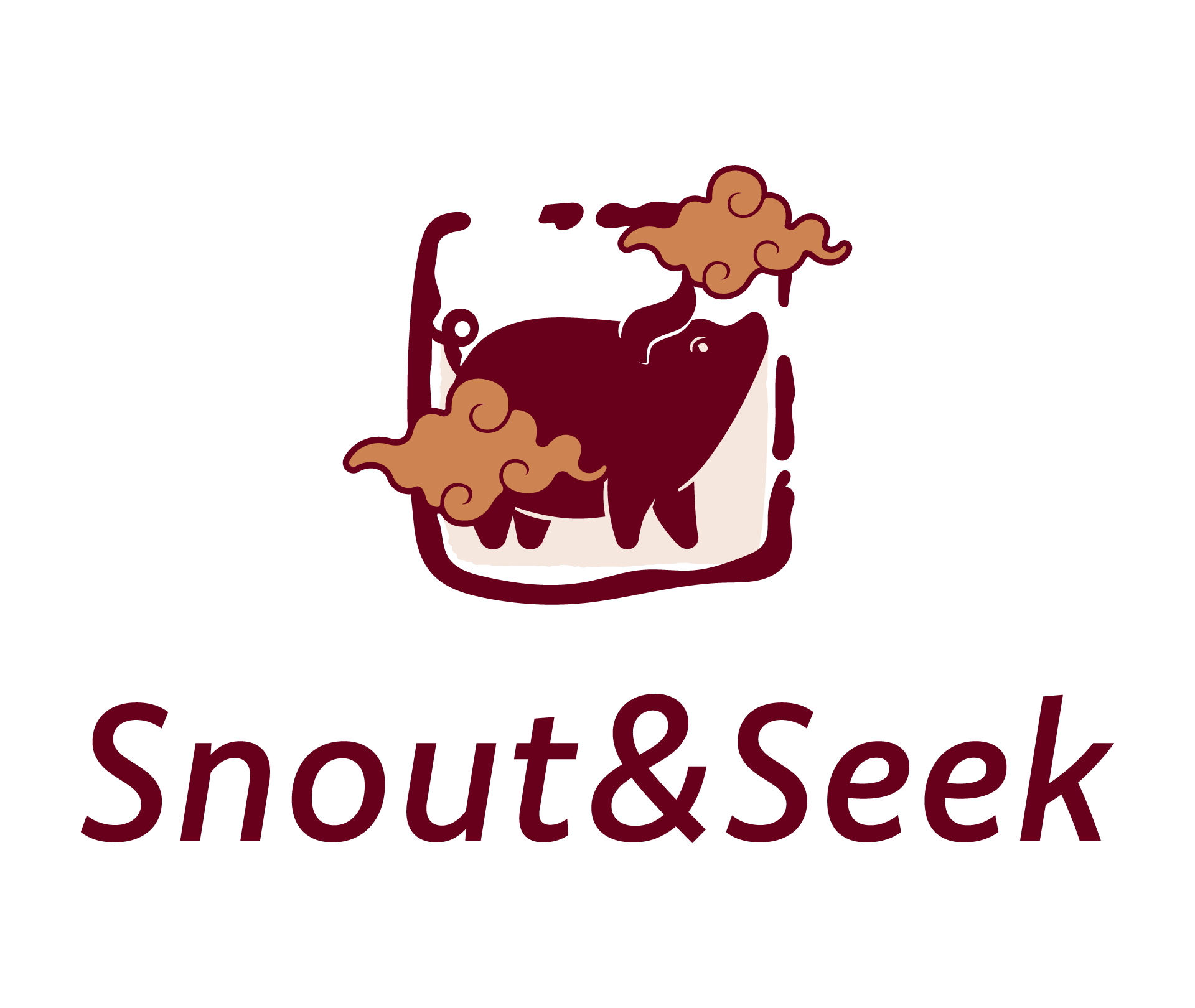Meet Arnold…
It was an afternoon in the hot and humid summer in Ottawa. After being quarantined at home in China for a month, I sat at the back of a few rows of chairs in a historic building where Le Cordon Bleu Ottawa was located.
From being refrained from going outside and required to take COVID tests every day, to suddenly sitting in a room full of complete strangers trying to make conversation about how our summer had been so far, a sense of fragmentation was rising with every second.
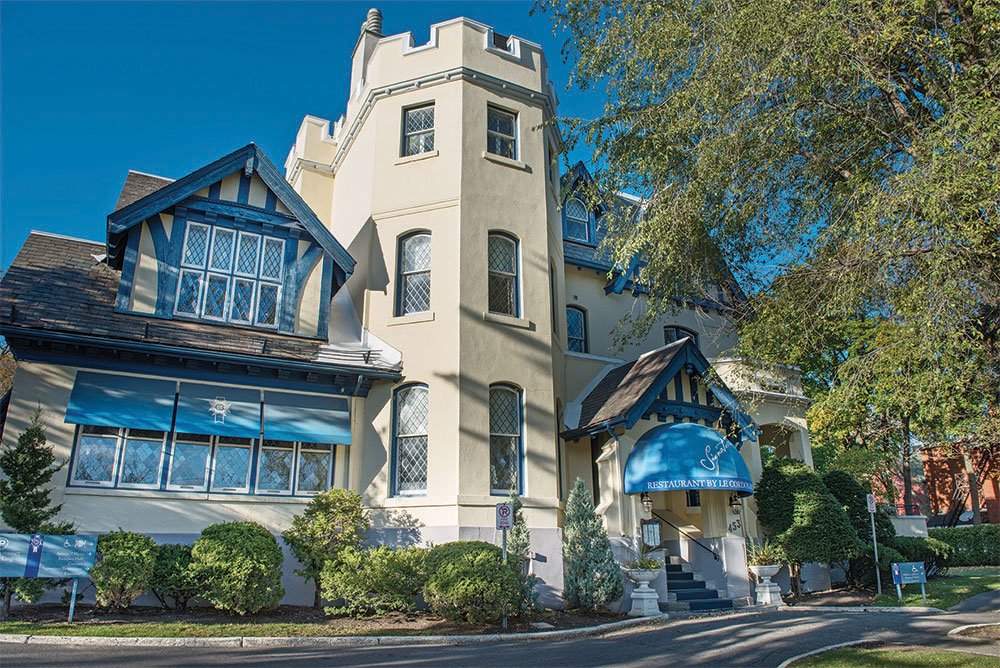
(Le Cordon Bleu Ottawa)
Chef Jackets, Knife Kits, and Unspoken Questions
I had a huge bag of uniforms and a long blue knife bag sitting on the floor next to me. Everyone looked excited and eager to learn more about the program. After an orientation speech from the staff, we were waiting for a chef instructor to show us the knife kit. People began to chat and introduce themselves.
As the observant type, I started to assess the dynamics of my future classmates. Although people were wearing masks, some were visibly much younger than me, some very shy, and some quite outspoken.
Among them, I noticed a young man with curly hair and smiling eyes, speaking confidently with people he had just met. His English sounded native, but his personality was a little too relaxed for a typical Canadian. I wondered how he had gone through to get here.
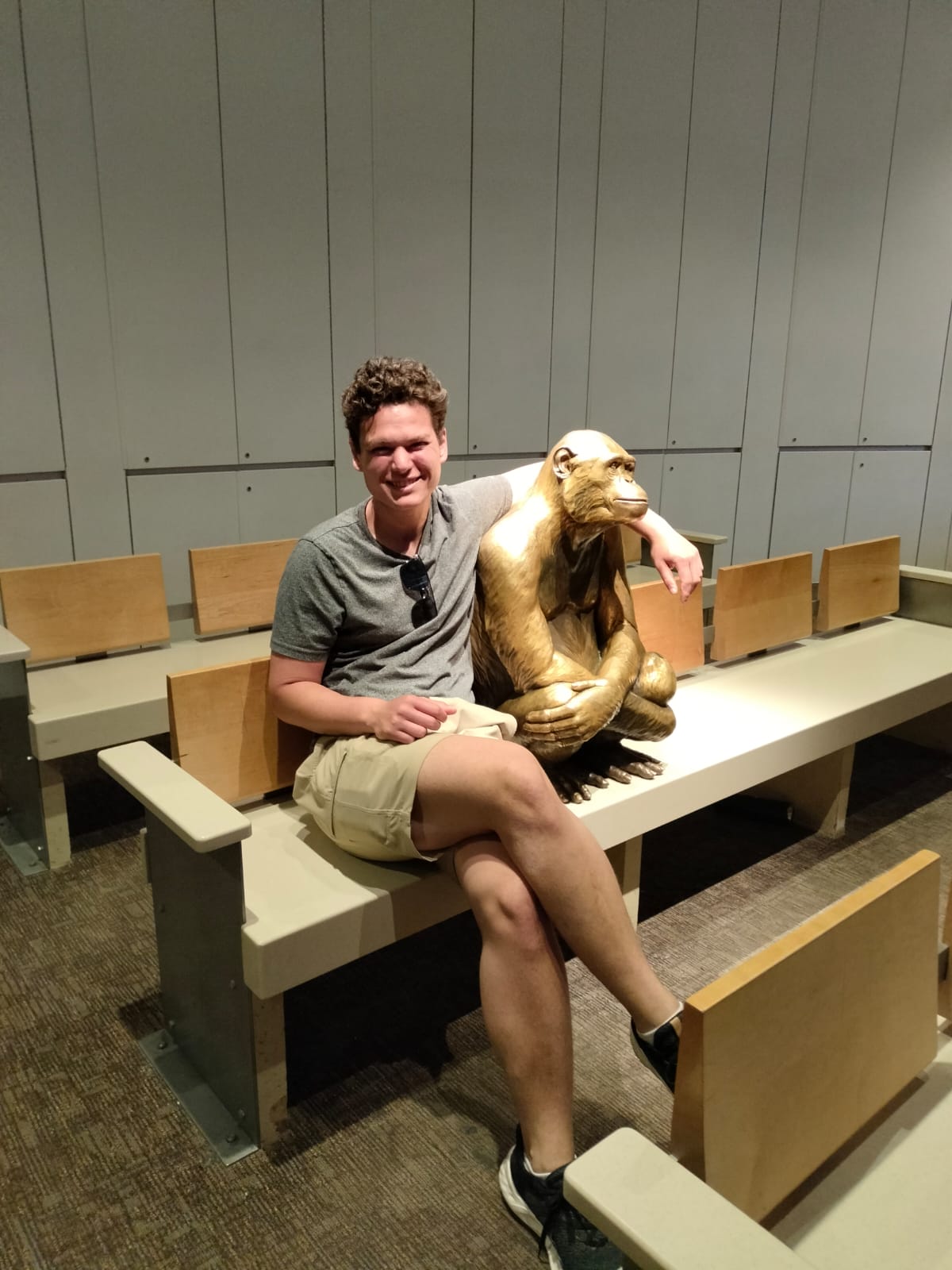
How the Unmatched Competition Started
One week into the course, I learned that he was part Dutch and part Sri Lankan. He had already worked in kitchens before, and he was a fast learner with strong execution skills. As someone who also had some kitchen experience before coming to Le Cordon Bleu, I secretly viewed Arnold as competition.
Although he had much more experience than me, I always wanted to be the top student in class. There was always one person who finished the dish first during practical sessions—with good taste and clean presentation. Arnold managed to take that spot most of the time. He was quick and methodical, very aware of what he was doing, making shortcuts that only a professional would know.
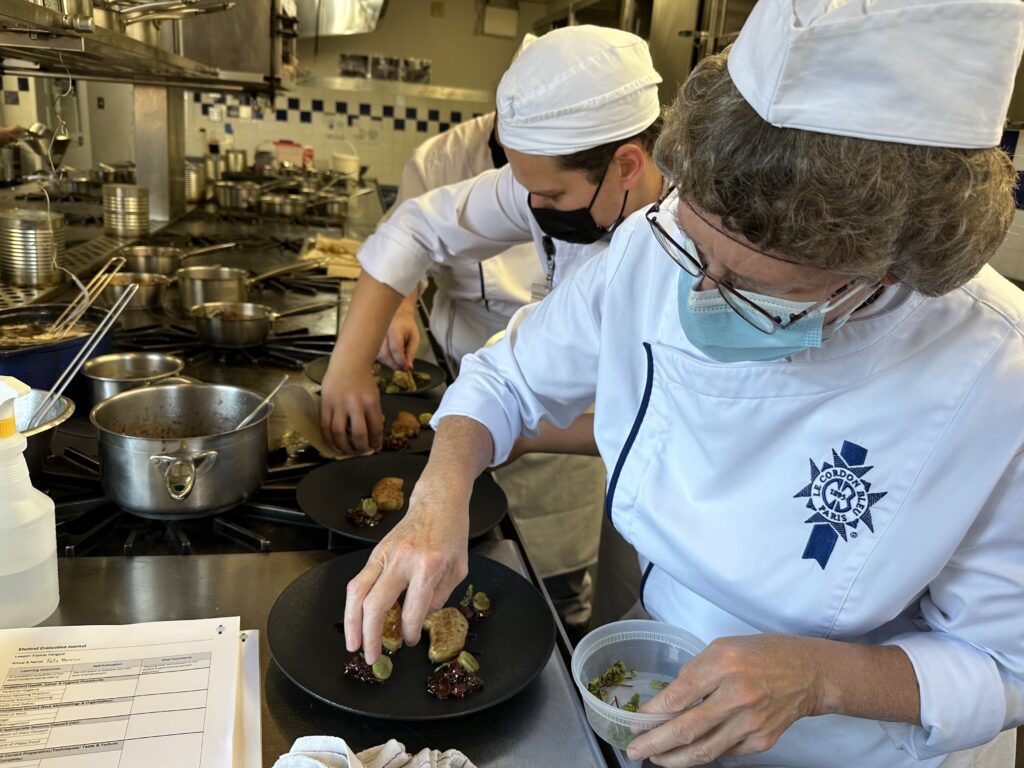
(At Le Cordon Bleu Ottawa, with classmates at Intermediate Cuisine Practical session)
For him, a lot of things just came naturally—from his execution to the way he helped classmates who weren’t fluent in English understand the course materials. Although I managed to take a few first places in between, I knew this program didn’t mean the same thing to him as it did to me.
I didn’t know it then, but behind his calm and collected presence was a story shaped by two cultures, a strong connection to food, and a journey that started long before culinary school.
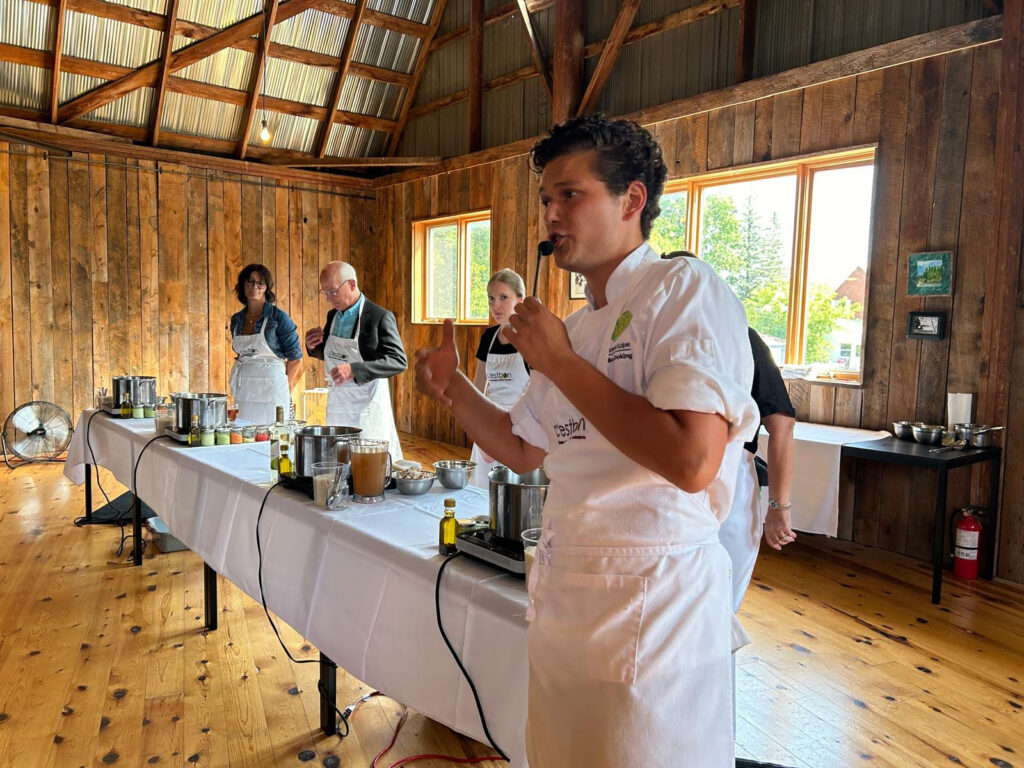
(Chef Instructor @ C’est Bon Ottawa)
Part One: Arnold’s Culinary Roots Across Two Worlds

Arnold doesn’t describe becoming a chef as the result of one defining moment. Instead, his path was shaped gradually—by taste, memory, and experience.
He was born in Sri Lanka to a Dutch father and Sri Lankan mother and grew up in a household shaped by contrast. On one side: family meals that were warm, loud, and full of spice. On the other: summers in the Netherlands, where family visits were quieter, more structured, and revolved around coffee, pastries, and polite conversation.
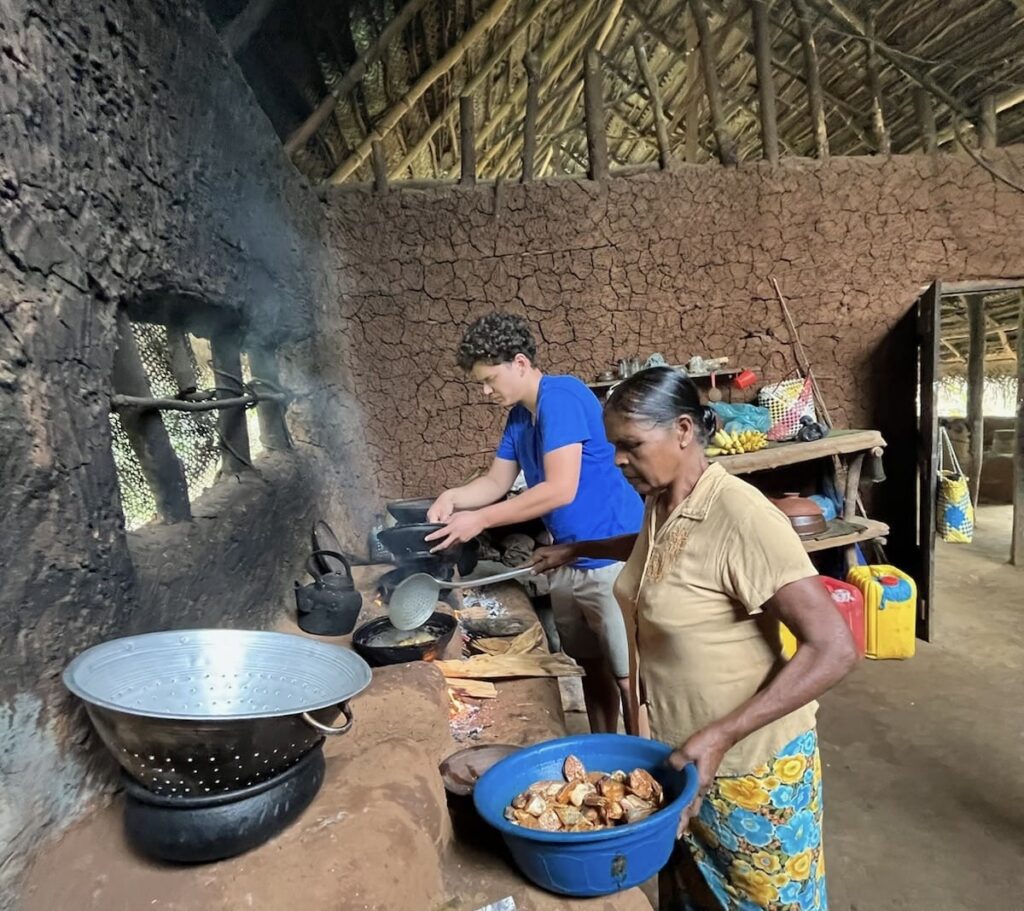
(Arnold cooking in Sri Lanka)
“Dutch and Sri Lankan cultures are almost polar opposites,” Arnold reflects. “But growing up in that mix gave me a different perspective—it helped me see how food connects people, no matter where you are.”
His earliest food memory is lunch at his grandmother’s home: a plate of rice, surrounded by fragrant curries, and the sound of laughter and conversation. He doesn’t recall the occasion, just the green bean curry with coconut milk, curry leaves, and garlic. That flavor stuck.
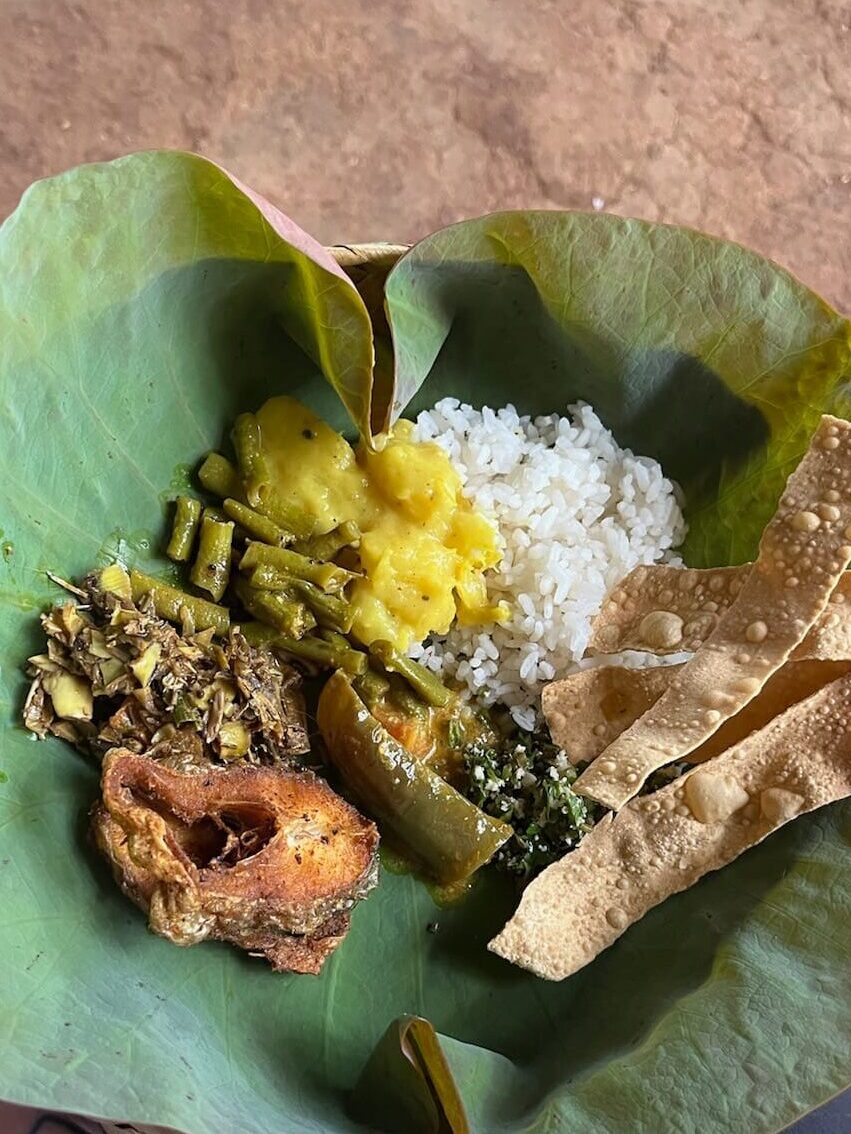
(Sri Lanka Green Bean Curry)
Years later, while studying at university in the Netherlands, Arnold took a part-time job washing dishes at a harbor pub in The Hague. When the opportunity arose to work the line, he took it. That move kicked off his slow, steady climb through different kitchens in Northern Europe, learning from chefs who shaped both his skills and perspective.
One of the most pivotal points came at Kasteel de Wittenburg, a historic castle turned boutique hotel with a fine dining restaurant. It was his first time working in a kitchen focused on culinary awards and prestige. The experience made him reflect: what did he actually want to achieve through food?
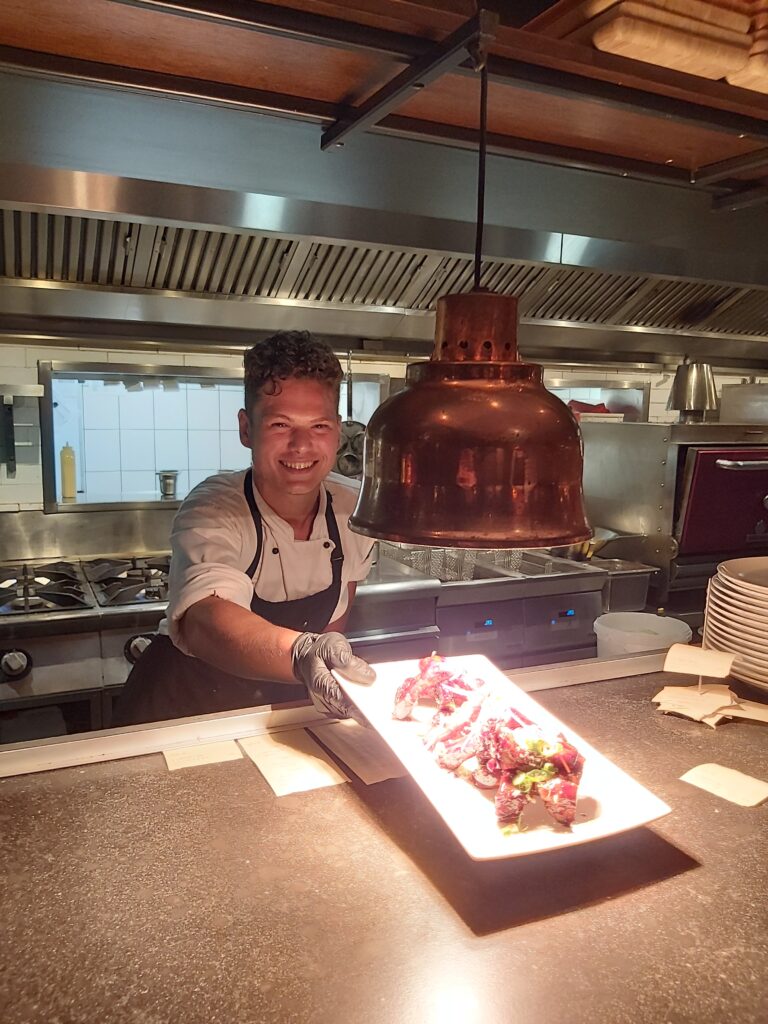
(Working as a chef in Europe)
Then the pandemic arrived. Like many chefs, Arnold’s career trajectory came to an abrupt pause. But that stillness also opened up something else – space to reconsider what food meant to him. And what role it might play in his future.
To be continued…

Join us in our Fermentation Experience in Sichuan!
Explore flavors of more than a hundred types.
Meet chefs that are quietly but steadily changing the world.
